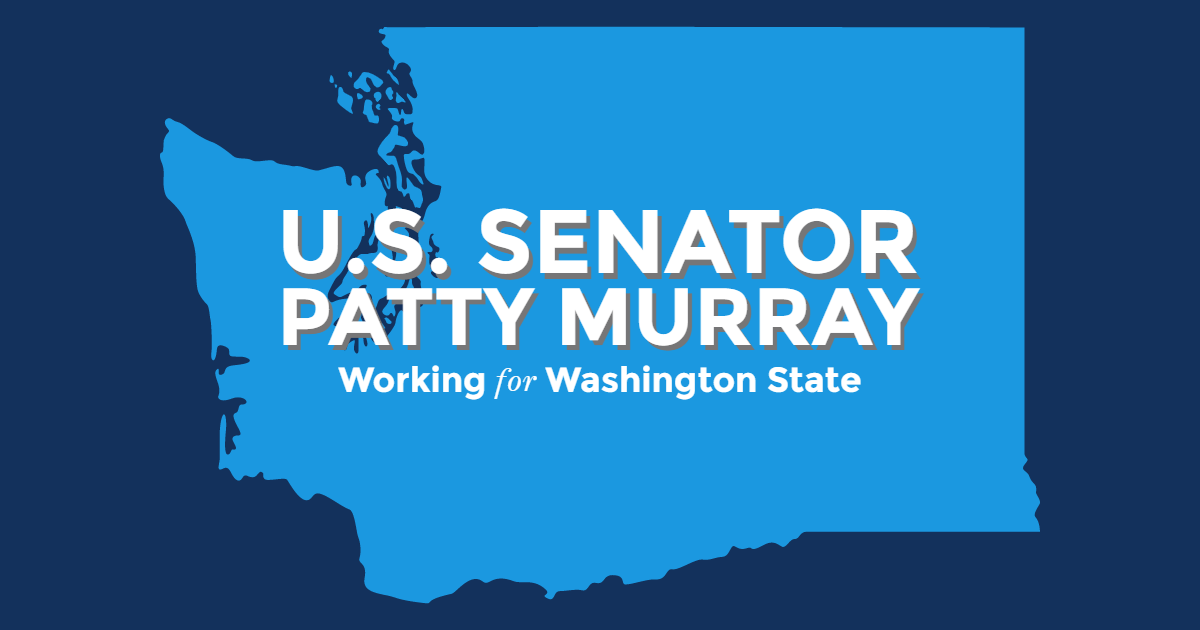Source: United States Senator for Washington State Patty Murray
Former pre-school teacher Senator Murray has fought to solve our child care crisis since she first got into office, and spearheaded the efforts to ensure that historic policies were included in the Build Back Better Senate framework announced today
(WASHINGTON, D.C.) – Today, former preschool teacher and U.S. Senator Patty Murray (D-WA), Chair of the Senate Health, Education, Labor, and Pensions (HELP) Committee, announced her strong support for the largest investments in child care and pre-K in our nation’s history, which are included in the President’s Build Back Better framework. Senator Murray has led the fight for affordable child care and pre-K since she first was elected to the Senate. The Build Back Better child care and universal pre-K policies were modeled off of Senator Murray’s Child Care for Working Families Act, and will dramatically lower child care costs for the vast majority of working families in America, dramatically increase the number of child care providers nationwide, raise child care workers’ wages, and establish universal pre-k for every family.
“Our child care crisis is one of the reasons I ran for office in the first place. To this day, when I talk to workers, parents, and business owners, the first thing they tell me is finding and affording child care is holding people back—especially coming out of the pandemic. That’s why we’re dramatically lowering families’ child care costs, helping parents get back to work, and making child care more available by finally paying child care workers the higher wages they deserve. For too long, our country has told working parents ‘you’re on your own’ when it comes to child care instead of ‘we’ve got your back.’ Finally, that’s about to change.”
Our country’s child care crisis is causing a massive financial strain on working families, forcing parents—and in particular, women—out of the workforce, and leaving child care workers unable to make ends meet. At just over $1,300 per month, families with infants would need to pay nearly $16,000 per year on average to cover the cost of high-quality child care. Sixteen thousand dollars is 21 percent of the U.S. average income for a family of three.
And even for families who can afford it—too many can’t find it. More than 50% of Americans—and 60% of rural Americans—live in child care deserts, or communities with an inadequate supply of licensed child care providers—and this was before COVID-19 forced over 20,000 providers to close their doors.
The child care and universal pre-k policies in Build Back Better will address this crisis by:
- establishing universal pre-k so every family has access to pre-kindergarten for children ages 3 and 4;
- providing subsidies to the vast majority of families in the United States—so that no eligible working family has to pay more than 7% of their income on child care. Specifically,
- working families earning up to 250% of the median income in their state (SMI), or about $300,000 a year nationally, would be eligible for child care assistance,
- those earning less than 75% of the SMI wouldn’t pay anything at all,
- families would pay for child care based on an income-based sliding scale, ensuring no eligible family pays more than 7 percent of income on child care;
- significantly expanding the number and improving the quality of child care providers across the country, which would benefit every single family who needs child care; and
- supporting higher wages for child care workers—most of whom are women and workers of color.
In addition to leading the fight to ensure her child care policies were included in Build Back Better, Senator Murray was also instrumental in securing $39 billion for child care as part of the American Rescue Plan, $3.5 billion in the CARES Act, $10 billion in the COVID relief package passed in December, and $5.91 billion in the FY21 spending bill. Before the pandemic, Senator Murray also secured crucial funding increases in the 2019 and 2020 Labor, HHS and Education Appropriations bills for the Child Care and Development Block Grant and Head Start.
###
